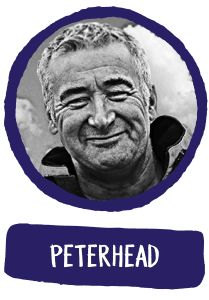An icon of mackerel fishery
Facts & Figures
‘Go out to sea and searching for fish – that’s in our blood’
Mackerel fisherman William is the eighth generation of a large family that has been fishing for fair mackerel for centuries. ‘It’s in our blood,’ he says. Of course, he loves to eat fish. Smoked mackerel is his favourite - in soup, on a sandwich, or like his co-workers: with tomato salsa and garlic.
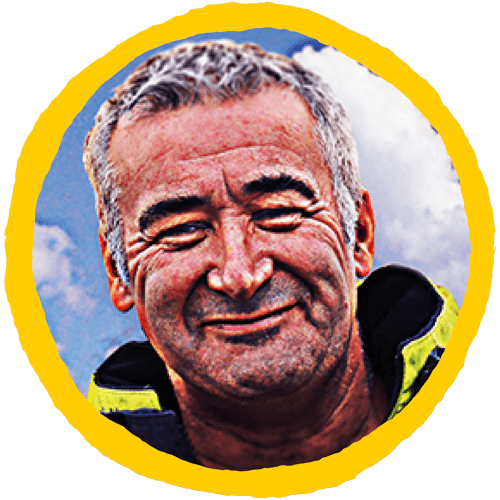
Fishing method
The mackerel fishermen work with cone-shaped nets which they tie to the back of their boats and pull through the water. Because mackerels swim in compact schools, this method is very selective.
Peterhead
Though the Scottish village of Peterhead might be cute and picturesque, the impressive Chris Andra docked there sure isn’t. This blue-white trawler is over 229-foot-long, making it one of the largest boats of the Scottish fishing fleet. An icon in the North Sea - mackerel fishery.
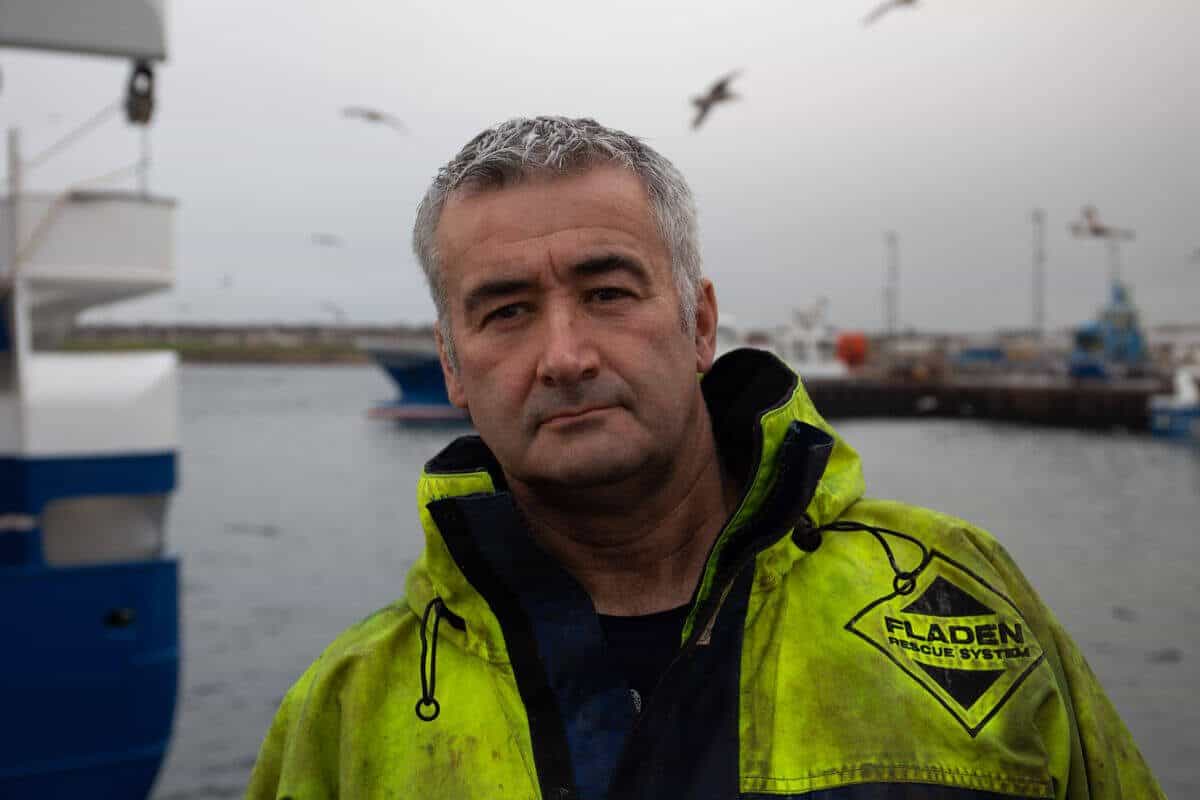
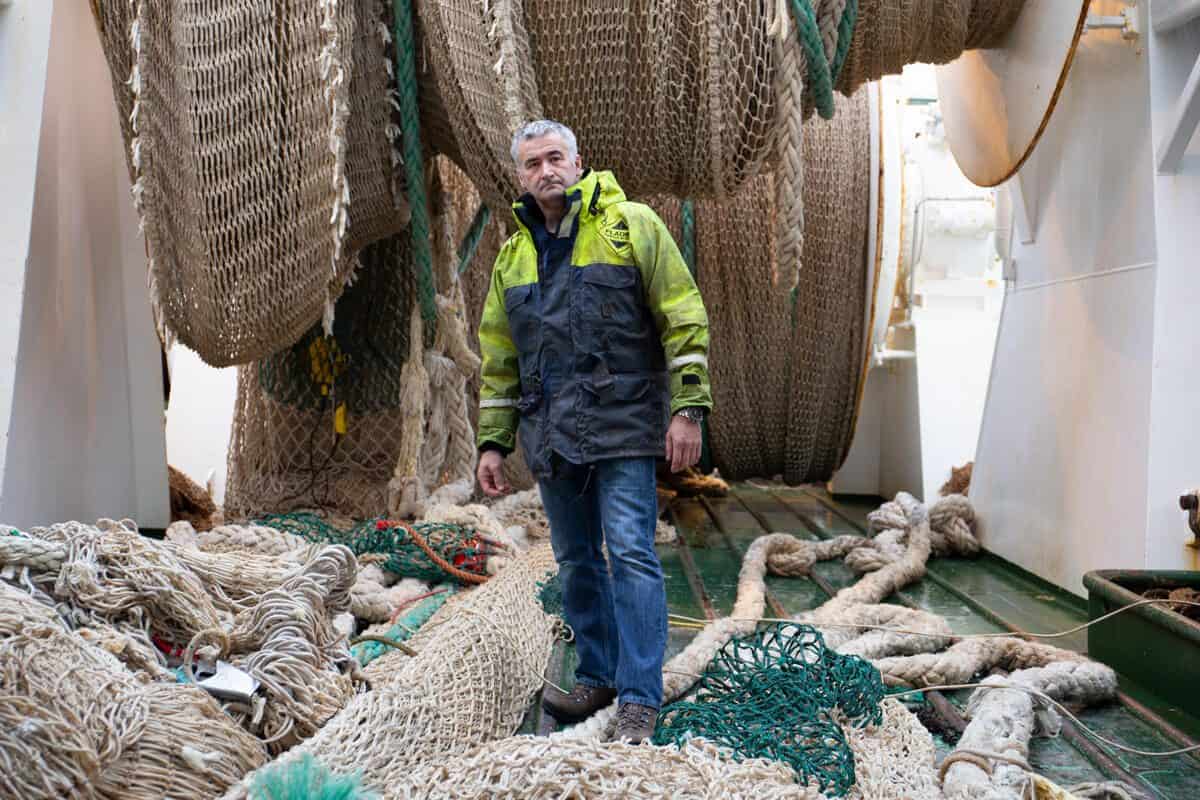
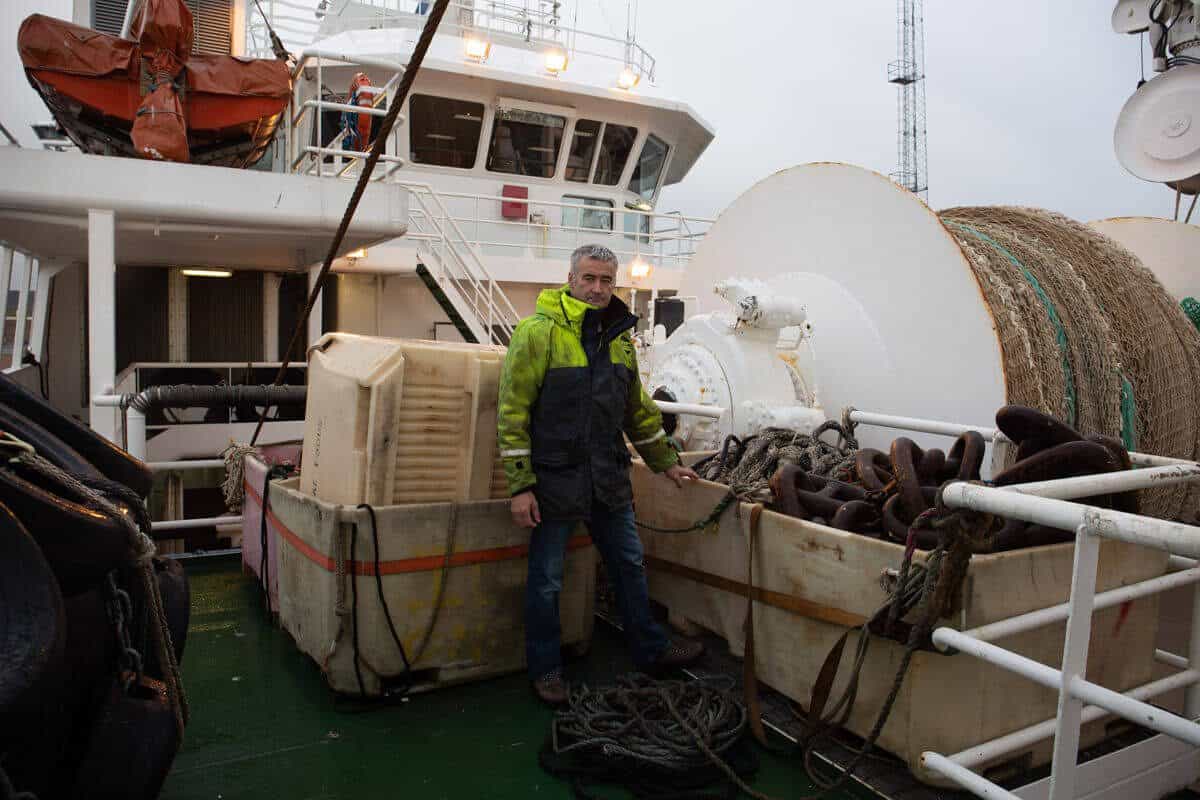
Blue town
Peterhead can be found on the northeast shore of Scotland, just above Aberdeen. Many of the 19,000 inhabitants work in the fishing industry, either at sea or at the fish markets. The town’s nickname is Blue Toon (blue town). No-one really knows why, but legend has it that the name comes from the colour of the knitted socks and jumpers of the local fishermen.

Mackerel
Mackerels eat a lot. They can eat so much, sometimes they don’t even close their mouth to eat: young mackerels swim with their mouth open through clouds of plankton and filter little animals out the water with their gills. The upside of all the eating that they do, is that their meat is tender, fatty and is filled with omega 3 fatty acids. Healthy and tasty. The North Sea mackerel is also perfect to smoke.


